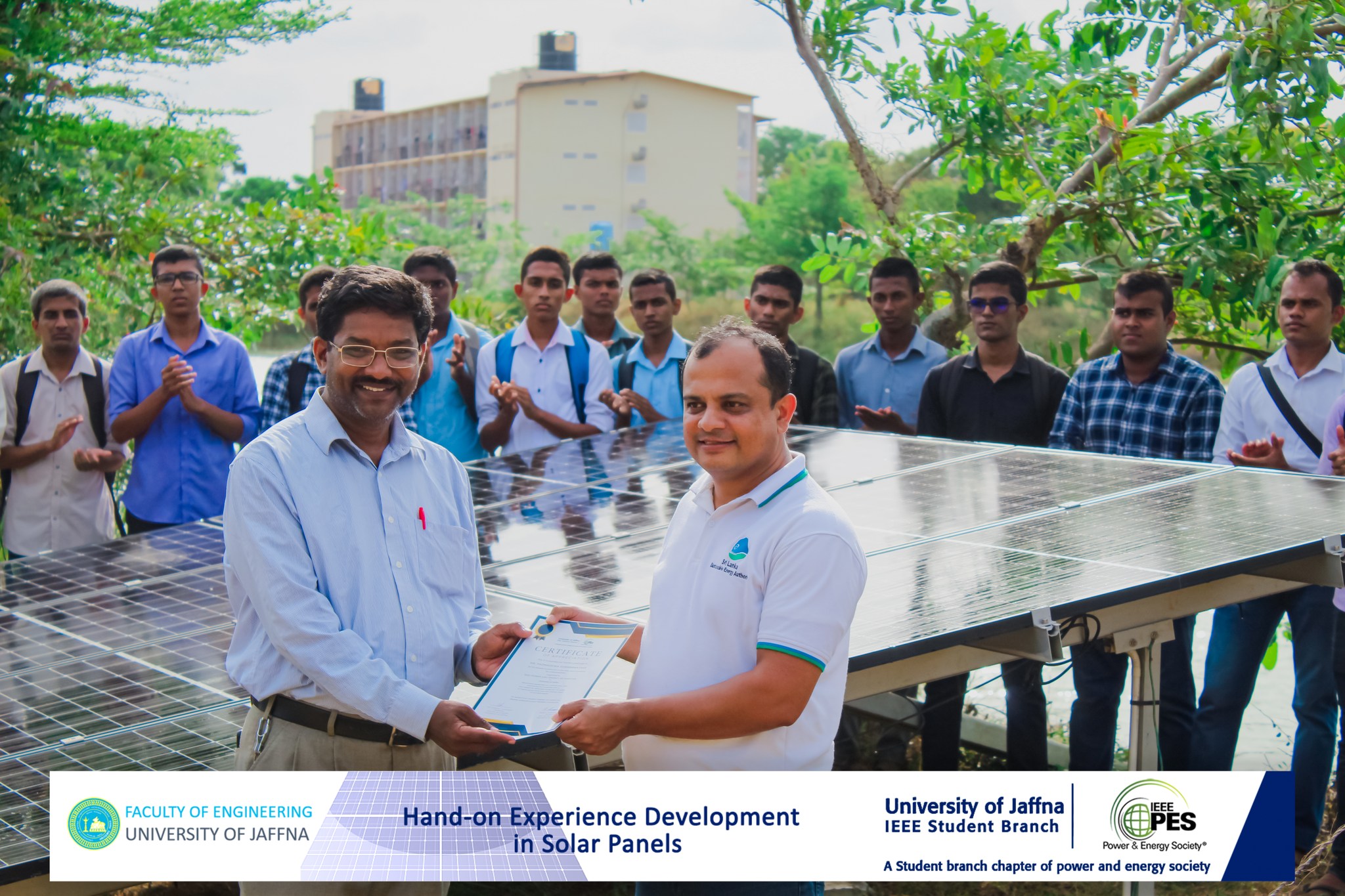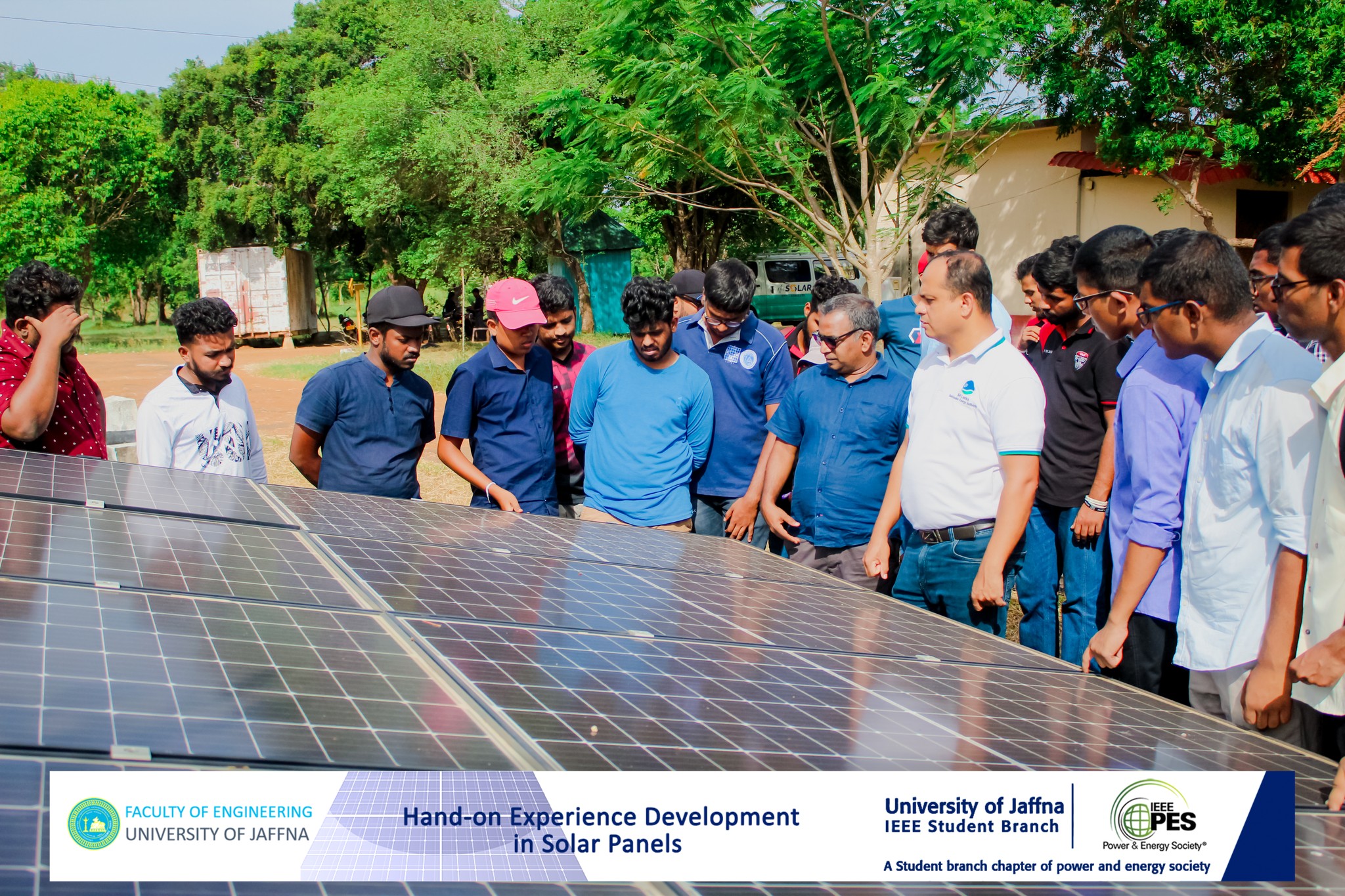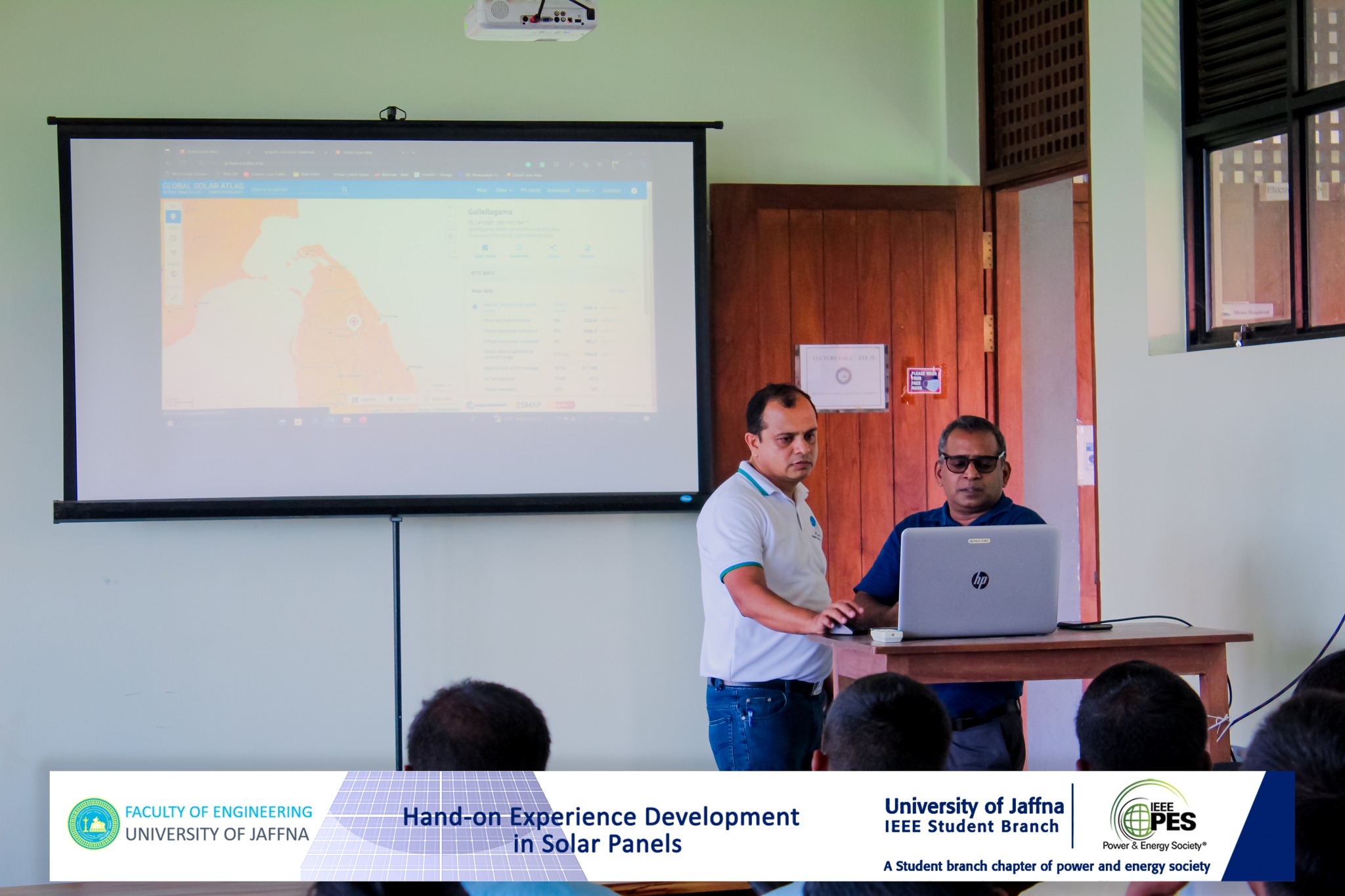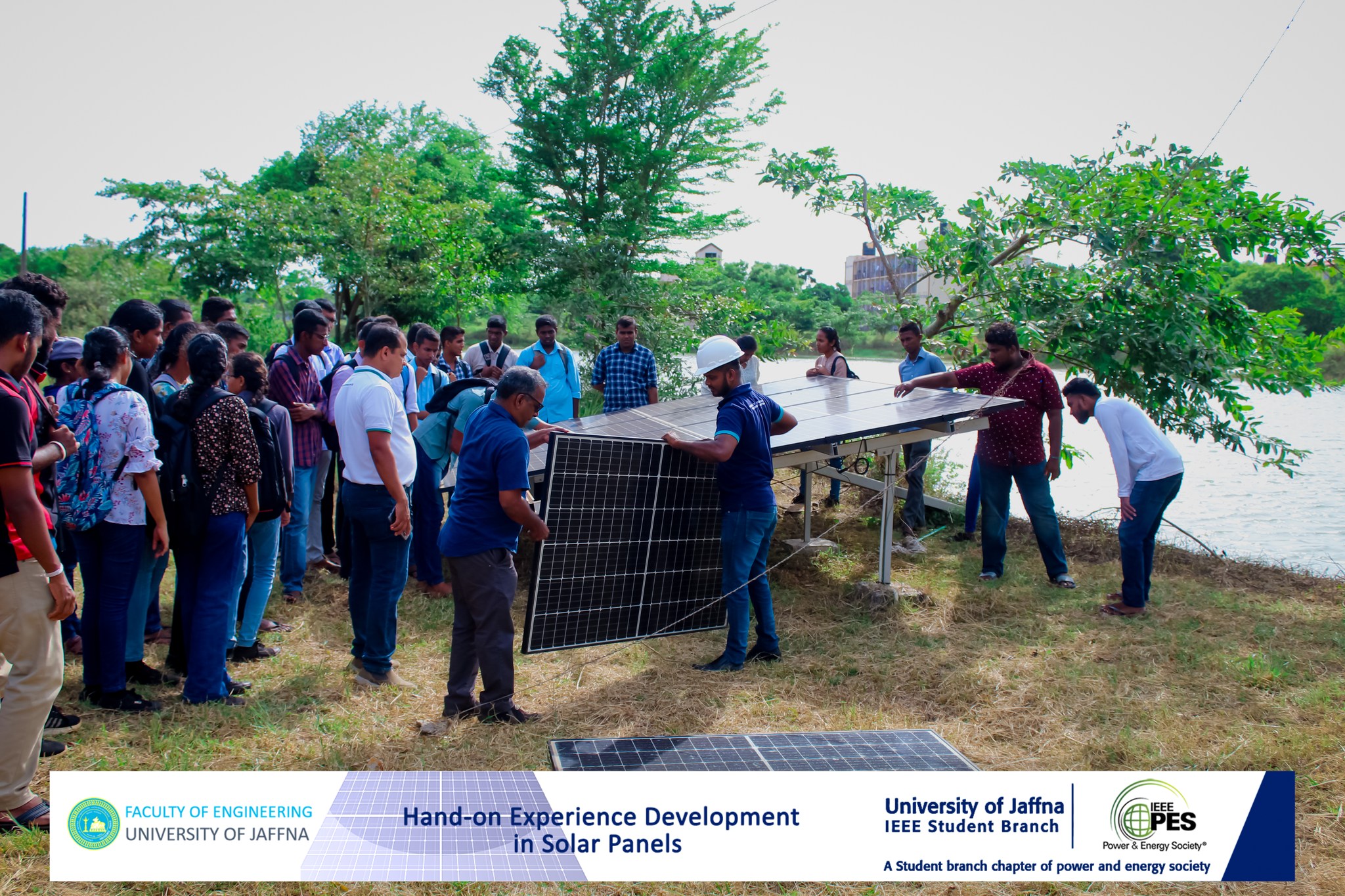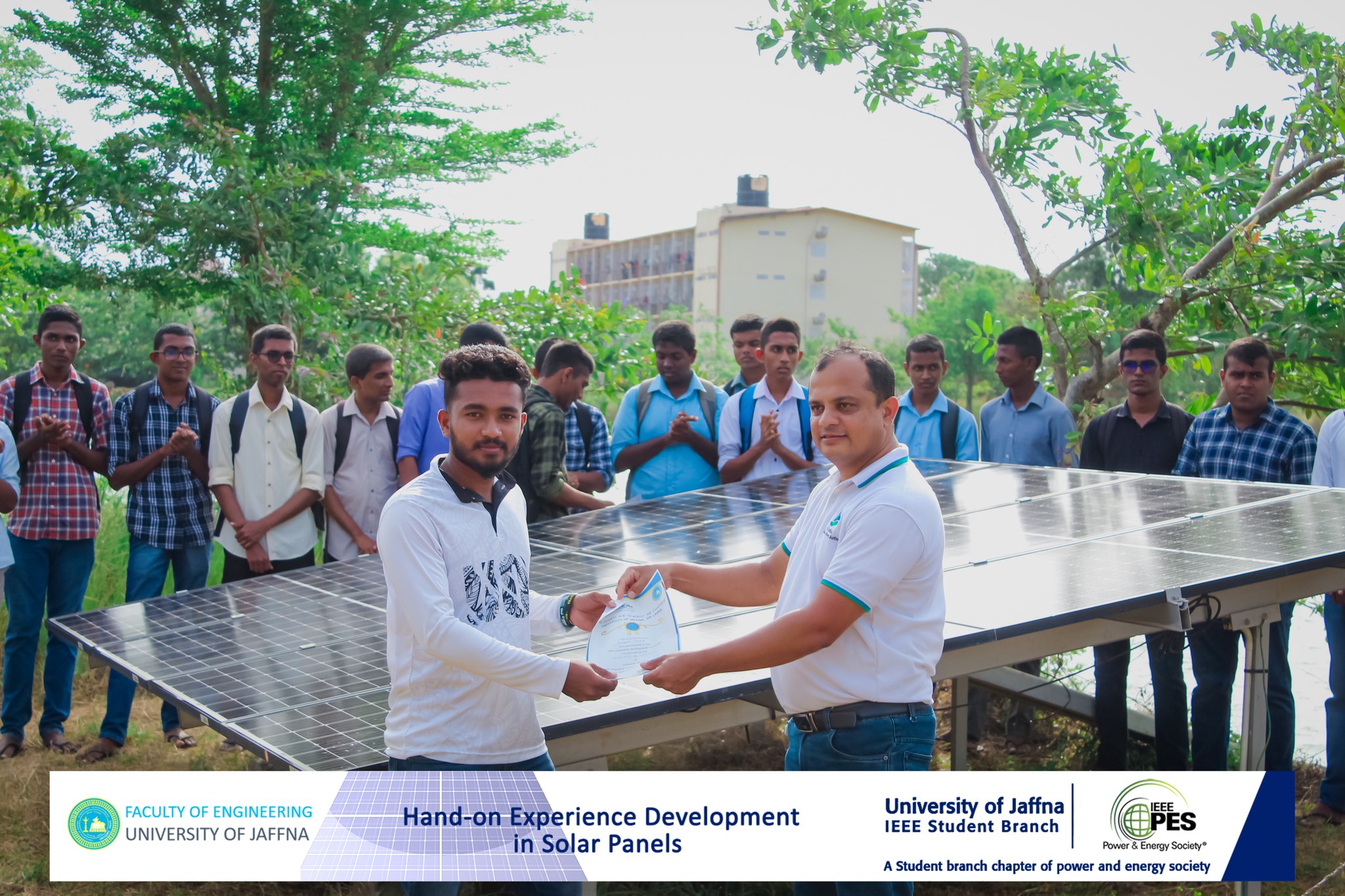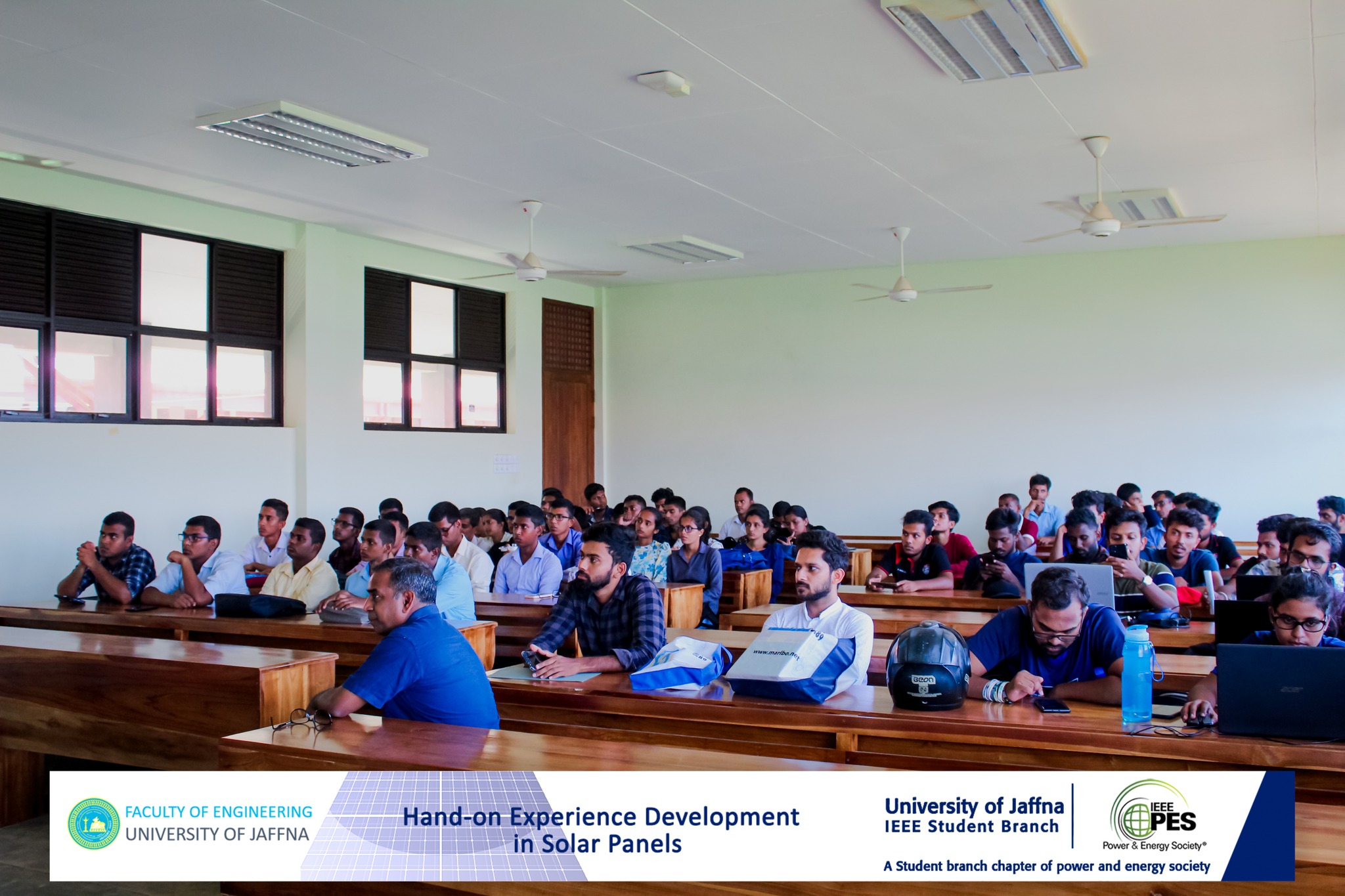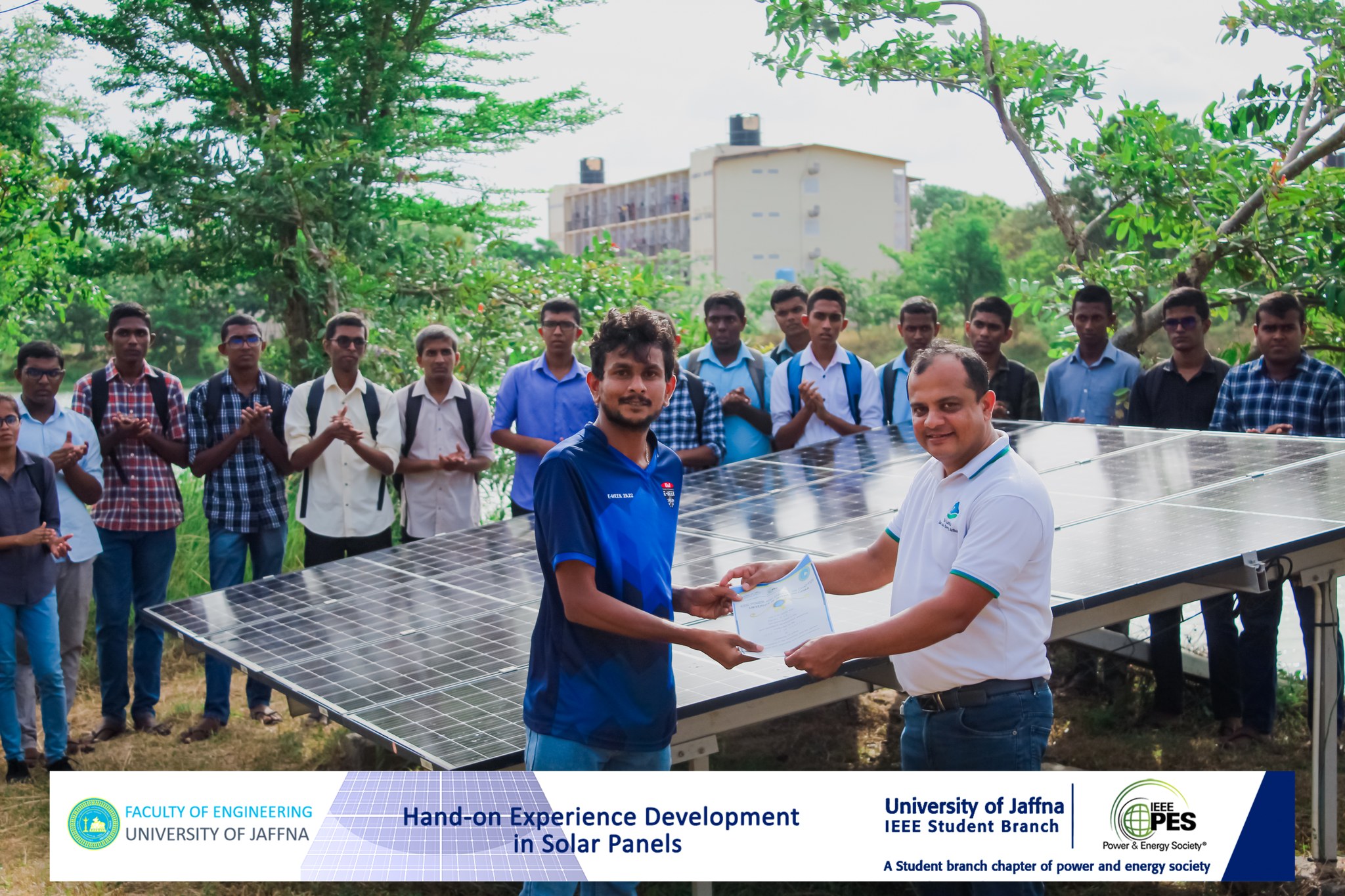Hands-on workshop on Solar Panel Skill Development
Introduction:
The IEEE Power and Energy Society, in collaboration with the University of Jaffna, organized a hands-on session on Solar Panel Skill Development to unlock the potential of solar energy. The workshop was conducted on 06/25/2023 and was facilitated by Mr. Padmadewa Samaranayake, the Project Coordinator Officer of the Sri Lankan Sustainable Energy Authority. Around 50 participants joined the workshop. The aim was to provide participants with practical training and enhance their technical expertise in solar panel systems.
Workshop Objectives :
The workshop aimed to achieve the following objectives for the participants:
- Understanding the basics of solar PV systems, their components, and the potential for electricity generation.
- Hands-on learning in the technical design of grid-connected solar rooftop PV power plants.
- Developing skills in preparing feasibility reports and proposals for new solar panel projects.
- Gaining practical knowledge of implementation aspects, best practices, and testing and commissioning processes in grid-connected PV power plants.
Agenda:
The workshop covered a range of topics related to solar panel systems. The agenda for the day included:
1) Site Assessment for a PV Power Plant:
Participants learned how to conduct a site assessment for a photovoltaic (PV) power plant, including working with an irradiance meter and a Solar Pathfinder. The workshop began with an introduction to solar pathfinders, which assist in determining the optimal placement of solar panels. Participants learned how to utilize solar pathfinder tools effectively to ensure maximum sunlight exposure for efficient energy generation.
2) Measurement of PV Module Parameters, Temperature & Radiation:
The workshop covered the measurement of various parameters of PV modules, such as temperature and radiation.
3) Site Visits:
Depending on availability, participants had the opportunity to visit actual solar panel sites to gain practical exposure and understanding. The significance of the angle at which solar panels are installed was explained in detail. Participants actively
Rooftop Solar:The session explored the concept of rooftop solar installations. Attendees learned about the benefits, challenges, and considerations associated with installing solar panels on rooftops. Mr. Samaranayake shared insights on design aspects, roof suitability, and regulations about rooftop solar systems.
4) Handling Tools and Testing Equipment:
Participants were familiarized with the tools and testing equipment used in solar panel installations.
5) Installing Residential Racking:
The hands-on training was provided on the installation of residential racking systems for solar panels. Under the guidance of Mr. Samaranayake and his teammates, they learned about the components of a solar panel system, their functionality, and the effective installation and maintenance techniques. engaged in determining the optimum angle for maximizing solar energy absorption. They learned about numerous factors influencing angle selection and techniques to achieve the best possible results.
6) Solar PV System in Software (Hands-On):
Participants gained practical experience in working with software to design and simulate solar PV systems.
7) Assembling and Connecting a Complete String Inverter System:
Participants learned how to assemble and connect a complete string inverter system, including mounting panels on racks, connecting to a combiner box, wiring the inverter, and connecting to the circuit breaker panel. The session delved into the concept of string configurations in solar panel arrays. Participants learned about the arrangement and interconnection of solar panels to form strings, enabling efficient electricity generation and transmission.
Practical Experience Connecting to a Motor: To demonstrate the practical application of solar energy, participants learned how to connect a solar panel system to a motor. They gained hands-on experience in the process of converting solar energy into mechanical energy, further highlighting the versatility of solar power.
8) Configuration Example PV Inverters:
The workshop covered the configuration of PV inverters through practical examples.
9) Inspecting and Testing Components of PV Systems:
Participants were taught how to inspect and test various components of PV systems to ensure their proper functioning.
10) Optimizer Installation and Micro-inverter Installation:
The training was provided on the installation of optimizers and an overview of microinverters and their role in solar panel systems, which are key components of advanced solar panel systems. The workshop provided. Participants understood the advantages of microinverters and learned how to effectively integrate them into solar energy setups.
11) Important Checkpoints for Testing and Commissioning of a PV Power Plant:
The workshop emphasized the critical checkpoints to consider during a PV power plant’s testing and commissioning phase.
12) Best Practices, Safety, and O&M Checks:
Safety measures were emphasized throughout the workshop as participants learned about handling solar panels and associated equipment safely. Comprehensive safety guidelines were provided to ensure that attendees understood the importance of electrical safety and protection measures.
The “Introduction to Simulation Software for Energy Modelling” workshop promises to be an enriching experience for participants, equipping them with the knowledge and practical skills to utilize simulation software effectively in energy analysis and optimization. With expert presentations, hands-on activities, networking opportunities, and comprehensive resource materials, this workshop will enable attendees to take significant strides in their energy modeling journey.
Conclusion:
The workshop on solar panel skill development provided participants with practical training and enhanced their technical skills in solar panel installation and maintenance. The comprehensive agenda covered site assessment, measurement of PV module parameters, installation techniques, testing, and commissioning procedures. Through hands-on experience, expert guidance, and in-depth discussions, attendees gained insights into unlocking the potential of solar energy and promoting sustainable practices. It also emphasized best practices, safety measures, and operations and maintenance checks. The event successfully concluded on 06/25/2023, leaving participants equipped with the necessary skills to harness the power of solar energy. Overall, it was a valuable learning experience contributing to the development of skilled professionals in renewable energy technologies.
A collection of event photographs can be found in the provided drive link. https://drive.google.com/drive/folders/1Tx2edUdELSAXOg9CG-Lm8XjYgqULaOEH
![]() Photograghed and Edited by: Sasindu Malhara
Photograghed and Edited by: Sasindu Malhara


